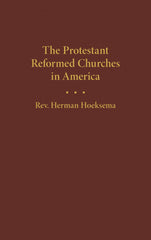Your cart is empty now.

Watch your mouth! (4)
This article by Rev. Joshua Engelsma was published in The Standard Bearer, January 15 2022.
Watch your mouth! (1)
Watch your mouth! (2)
Watch your mouth! (3): Truth
_________
In the previous article on the subject of communication, we began laying out some of the key principles that govern our speech. We started with the first and most important principle: We must speak the truth, not the lie.
Although speaking the truth is the most fundamental principle of communication, it is not the only one. You and I would be foolish if we concluded, “As long as I speak the truth, it doesn’t matter what I say and how I say it! The ends justify the means, so that, as long as my end goal is speaking the truth, then anything else goes!” If that is the way we think, then we are foolishly ignoring large sections of God’s Word that address other key principles of communication.
Think of your words as water flowing through pipes to a faucet in your house. Before you drink the water coming out of the faucet, you trust that it has passed through a number of filters to remove any harmful impurities. In a similar way, before the words we intend to speak pass through our lips, they must pass through a number of filters. Bypassing these filters, what spews from our mouth is sewage. The first filter that our words must pass through is the truth-filter (“Am I sure that the words I am about to say are true?”). But once our words pass through that filter, there are other filters they must pass through as well. Simply passing through the truth-filter does not insure that all impurities have been removed.
In addition to the truth-filter, another filter that applies to our communication is the necessity-filter (“Are the words I am about to speak not only true but also necessary?”). Let’s examine that filter more closely.
“Loose lips…”
When we addressed last time the subject of speaking the truth, we considered that one form of lying is slander. We defined slander along these lines: speaking a lie or an unproven, malicious statement about another person that injures his reputation. Slander is sin against the ninth commandment.
Here we want to consider a sister-sin to slander: gossip or backbiting. If slander is saying what is not true about a person, gossip or backbiting is when we say some unflattering truth about him. Usually we say these things to others when the brother or sister’s back is turned, and the effect is that we also needlessly injure his or her reputation.
The sin of backbiting is all too common among us. When we get together with others, we love to talk about other people’s lives and their faults and flaws. We love to dish the latest dirt that we have heard, no matter that it unnecessarily ruins the reputations of others. How we hate the thought of others talking about us while our backs are turned, but how we love to do the same to others!
Maintaining confidentiality seems to be going the way of the dodo. To maintain confidentiality means that we are aware of some private matter or some failure of another person but we keep it in strict confidence and do not blab about it to those who have no business knowing. But, more often than we would probably be willing to admit, we do not keep the circle of people who know something as small as possible but are guilty of extending it further.
What is more, we are skilled at minimizing this sin. We might try to cover it up by sounding quite pious: “I don’t mean to gossip, but I just thought you should know about what’s going on in this person’s life.” Or we might flatter the person we are telling: “I wouldn’t tell anyone else this, but I know you can keep it a secret.” Stripping away these cover attempts, the naked truth is that we are being wickedly nosy and gossipy.
Although we are tempted to minimize this sin in our lives, what we need to have impressed upon us is that this is no minor, insignificant sin. There are many New Testament passages that warn against this sin (for example, Rom. 1:29; II Cor. 12:20; I Tim. 5:13). There are also repeated warnings in the book of Proverbs concerning the sin of “tale-bearing.” For instance, Proverbs 18:8 says, “The words of a talebearer are as wounds, and they go down into the innermost parts of the belly” (cf. also Prov. 11:13; 20:19; 26:20).
The Heidelberg Catechism summarizes the teaching of God’s Word on this matter in Lord’s Day 43 when it says “that I be no backbiter, nor slanderer,” and then warns “that I avoid all sorts of lies and deceit as the proper works of the devil, unless I would bring down upon me the heavy wrath of God.”
Is that how we think about the sin of backbiting? As a proper work of the devil? As a sin so heinous that, continuing in it, one would bring down upon himself the heavy wrath of God?
We ought to be aware of another way in which our words fail the necessity-test. We fail this test not only when we say things we ought not when our neighbor’s back is turned, but also when we say things we ought not to his face.
We might pride ourselves on being a “straight-shooter,” someone who is blunt and always cuts to the chase, someone who always speaks his mind. But this is no virtue. Proverbs 29:11 says, “A fool uttereth all his mind; but a wise man keepeth it in till afterwards.” Only the fool is a person who always says what is on his mind, without consideration to time and place and circumstances.
Consider a few examples. Say you are dating, and you and your boyfriend/girlfriend decide to hang out with a group of friends. In the course of the conversation, your significant other says something not quite right or a little embarrassing. You decide to correct him/her on the spot and give a brief lecture on what is correct, thus mortifying your date in front of everyone else. Was what you said something on your mind? Yes. Was it true? Yes, every word. Was it important, necessary, and helpful to say it then or to say it at all? Not at all!
Or, you are at the supper table with your family. You say to your sibling, “Your breath stinks. The way you chew your food is so annoying. You’re not popular at school.” Were those things on your mind? Yes. Are they true? Yes, they might be. Was it important, necessary, and helpful to say them then or to say them at all? Most likely not!
Too often we speak unnecessary words without thinking!
Think!
Rather than being used for sinful gossip or backbiting, our words must pass through the necessity-filter.
What lies behind the idea of speaking when necessary is a concern for our neighbor’s name and reputation. According to Proverbs 22:1, “A good name is rather to be chosen than great riches, and loving favour rather than silver and gold.” According to Lord’s Day 43, the ninth commandment requires that I “defend and promote, as much as I am able, the honor and good character of my neighbor.” Speaking when necessary means that we have an eye on the neighbor’s good name.
At times, when it is mentioned that we are seeking to defend the neighbor’s reputation, the notion is scoffed at as if we are only concerned about the reputations of men and are seeking to prop them up. Certainly it is true that the honor of men may not be our ultimate concern. But yet the neighbor’s reputation is and must be a concern. The law of God demands it.
Out of concern for the neighbor’s name, we seek to maintain confidentiality when necessary. Proverbs 25:9 says, “Debate thy cause with thy neighbour himself; and discover not a secret to another” (cf. also Prov. 17:9). The idea of maintaining confidentiality could be taken the wrong way by promoting a culture of silence and secrecy so that words that need to be said and issues that need to be addressed are not. That is not proper. The idea of maintaining confidentiality simply means that there are certain things that may not be broadcast widely and certain things about my neighbor that I ought not gossip about to others.
If a brother commits a sin privately that we are aware of, we are called to speak to him alone, without spreading the matter to others (cf. Matt. 18:15). If the sin is of a public nature, by its very nature it will be known to others, yet we still must be on guard against sinfully spreading to others what has happened. And for the rest (weaknesses or annoying traits in another), it is best to keep them to ourselves.
Consider some of the following things as they apply to the necessity of your words:
- Who am I? Am I the right person in the right position to say these things?
- To whom am I talking? Is this the right person/ group to speak to about this issue?
- What is it that I want to say? Is it regarding something important or unimportant?
- Is this the proper time to address this issue? Is there a better time and circumstance to raise the issue? Is this a matter of urgency or can it wait?
- What is going on in my heart? Am I motivated by sinful motives, such as pride or jealousy or revenge? Or do I truly have the neighbor’s wellbeing in my heart and want to be helpful?
Listen to what one of our spiritual fathers has to say on this issue:
Over against all this lying and slander and falsifying a man’s words and boasting of self stands the admonition of the Word of God that we shall always speak the truth in love concerning one another and concerning ourselves, before the God of our salvation. But what does this imply? Does it mean that we shall speak the truth about our neighbor all the time and in all circumstances? Does it mean that always and everywhere I shall say all that I know about him? God forbid. This certainly would not be speaking the truth in love. Does it mean that I am obliged to publish all that I know about myself? Also this not true. Of course not (Herman Hoeksema, The Triple Knowledge, 3:419).
In conclusion, speaking when necessary means that we must learn to think before we speak. Too easily words come tumbling out of our lips without any forethought, and that is often when our words get us into trouble. The idea of thinking before we speak has even been turned into a helpful acronym:
T—is it true?
H—it is helpful?
I—is it important?
N—is it necessary?
K—is it kind?
Covenant youth, THINK before you speak!
The content of the article above is the sole responsibility of the article author. This article does not necessarily reflect the opinions and beliefs of the Reformed Free Publishing staff or Association, and the article author does not speak for the RFPA.

Donate
Your contributions make it possible for us to reach Christians in more markets and more lands around the world than ever before.
Select Frequency
Enter Amount











